|
Relevant
books
available at Amazon
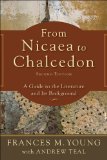 
Frances Young
-----
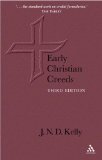 
-----
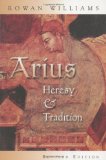 
Rowan Williams -----
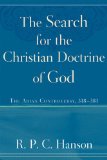 
R.P.C. Hanson -----
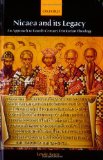 
Lewis Ayres
|
The Letter of the Synod, relative to its Decisions:
and the Condemnation of Arius and those who agreed with him.
To the holy, by the grace of God, and great church of the Alexandrians, and to
our beloved brethren throughout Egypt, Libya, and Pentapolis, the bishops
assembled at Nicæa, constituting the great and holy Synod, send greeting in the
Lord.
Since, by the grace of God, a great and holy Synod has been convened at Nicæa,
our most pious sovereign Constantine having summoned us out of various cities
and provinces for that purpose, it appeared to us indispensably necessary that a
letter should be written to you on the part of the sacred Synod; in order that
ye may know what subjects were brought under consideration and examined, and
what was eventually determined on and decreed. In the first place, then, the
impiety and guilt of Arius and his adherents were examined into, in the presence
of our most religious emperor Constantine: and it was unanimously decided that
his impious opinion should be anathematized, with all the blasphemous
expressions he has uttered, in affirming that ‘the Son of God sprang from
nothing,’ and that ‘there was a time when he was not’; saying moreover that ‘the
Son of God, because possessed of free will, was capable either of vice or
virtue; and calling him a creature and a work. All these sentiments the holy
Synod has anathematized, having scarcely patience to endure the hearing of such
an impious opinion, or, rather, madness, and such blasphemous words. But the
conclusion of our proceedings against him you must either have been informed of
already or will soon learn; for we would not seem to trample on a man who has
received the chastisement which his crime deserved. Yet so contagious has his
pestilential error proved, as to drag into perdition Theonas, bishop of
Marmarica, and Secundus of Ptolemaïs; for they have suffered the same
condemnation as himself. But when the grace of God delivered us from those
execrable dogmas, with all their impiety and blasphemy, and from those persons,
who had dared to cause discord and division among a people previously at peace,
there still remained the contumacy of Melitius [to be dealt with] and those who
had been ordained by him; and we now state to you, beloved brethren, what
resolution the Synod came to on this point. It was decreed, the Synod being
moved to great clemency towards Melitius, although strictly speaking he was
wholly undeserving of favor, that he remain in his own city but exercise no
authority either to ordain or nominate for ordination; and that he appear in no
other district or city on this pretense, but simply retain a nominal dignity.
That those who had received appointments from him, after having been confirmed
by a more legitimate ordination, should be admitted to communion on these
conditions: that they should continue to hold their rank and ministry, but
regard themselves as inferior in every respect to all those who have been
ordained and established in each place and church by our most-honored
fellow-minister, Alexander, so that they shall have no authority to propose or
nominate whom they please, or to do anything at all without the concurrence of
some bishop of the Catholic Church who is one of Alexander’s suffragans. On the
other hand, such as by the grace of God and your prayers have been found in no
schism, but have continued in the Catholic Church blameless, shall have
authority to nominate and ordain those who are worthy of the sacred office, and
to act in all things according to ecclesiastical law and usage. When it may
happen that any of those holding preferments in the church die, then let these
who have been thus recently admitted be advanced to the dignity of the deceased,
provided that they should appear worthy, and that the people should elect them,
the bishop of Alexandria also ratifying their choice. This privilege is conceded
to all the others indeed, but to Melitius personally we by no means grant the
same license, on account of his former disorderly conduct, and because of the
rashness and levity of his character, in order that no authority or jurisdiction
should be given him as a man liable again to create similar disturbances. These
are the things which specially affect Egypt, and the most holy church of the
Alexandrians: and if any other canon or ordinance has been established, our Lord
and most-honored fellow-minister and brother Alexander being present with us,
will on his return to you enter into more minute details, inasmuch as he has
been a participator in whatever is transacted, and has had the principal
direction of it. We have also gratifying intelligence to communicate to you
relative to unity of judgment on the subject of the most holy feast of Easter:
for this point also has been happily settled through your prayers; so that all
the brethren in the East who have heretofore kept this festival when the Jews
did, will henceforth conform to the Romans and to us, and to all who from the
earliest time have observed our period of celebrating Easter. Rejoicing
therefore in these conclusions and in the general unanimity and peace, as well
as in the extirpation of all heresy, receive with the greater honor and more
abundant love our fellow-minister and your bishop Alexander, who has greatly
delighted us by his presence, and even at his advanced age has undergone
extraordinary exertions in order that peace might be re-established among you.
Pray on behalf of us all, that the things decided as just may be inviolably
maintained through Almighty God, and our Lord Jesus Christ, together with the
Holy Spirit; to whom be glory for ever. Amen.
|

